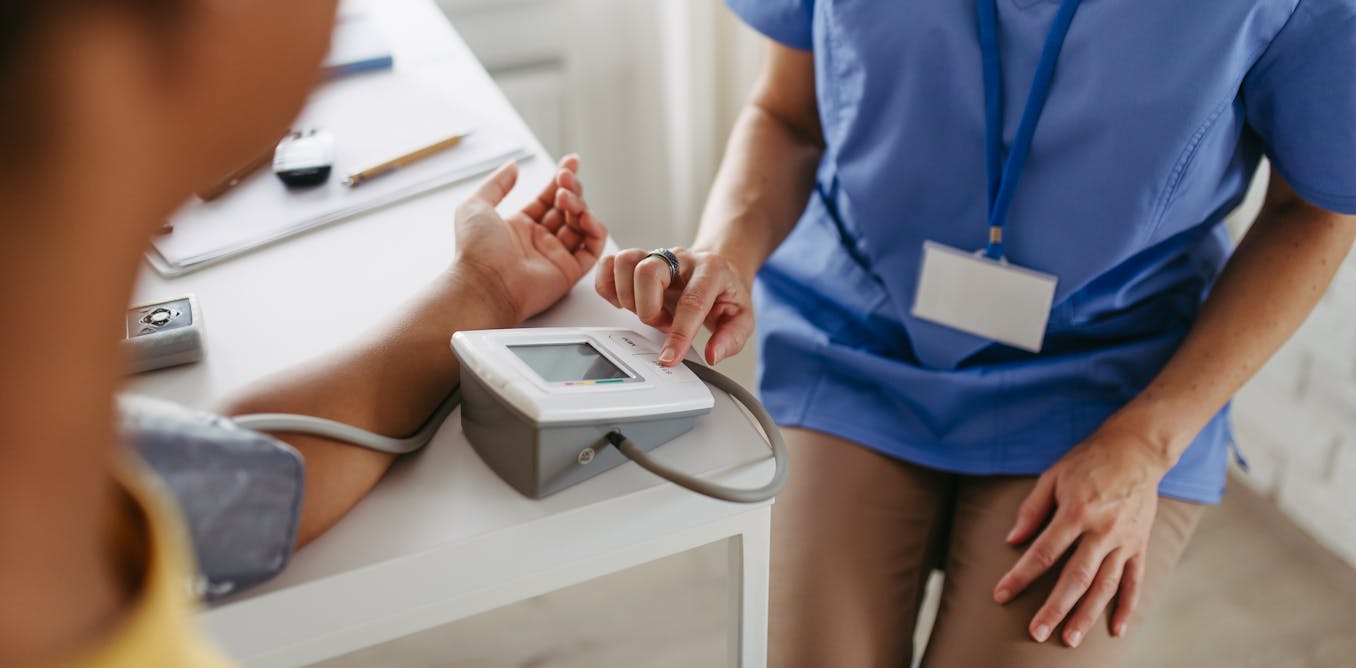BRITS heading to Bali will be required to get Covid-style passes amid fears surrounding the spread of mpox.
To enter Indonesia, travellers must complete an electronic self-declaration form, the SatuSehat Health Pass (SSHP).
6

6
The government introduced the new measures to monitor the spread of the mutant virus just weeks after the World Health Organisation (WHO) declared a global health emergency.
“All passengers and aircraft personnel travelling from abroad are required to fill in this health pass,” the health pass site reads.
“By declaring your health condition and travel history, you contribute to safer travel in Indonesia.”
Maria Kristi Endah Murni, the country’s director-general of air transportation, said the rule applies to all foreign travellers, including flight crew.
“Every foreign traveller flying to Indonesia must fill out an electronic self-declaration form called the SatuSehat Health Pass, as a guide for international airport operators to prevent and handle mpox transmission at airports,” she said.
The form must be completed online before passengers check in to their flight.
Visitors will then receive a personalised QR code with their health and travel history, which Indonesian authorities can scan upon arrival.
It works in a similar way to the travel passes used by some countries when Covid was spreading rapidly several years ago.
Balinese airport biosecurity teams have introduced thermal imaging cameras in the arrivals terminals to detect passengers coming in with high temperatures, according to the BaliSun.
Travellers who show symptoms of mpox may first be isolated, and then sent to a nearby hospital for treatment.
People planning to visit Indonesia can fill in the form on the app or website.
Indonesia has reported 80 confirmed cases of mpox in the past year.
Some other Asian countries, including South Korea, China, Thailand and Pakistan, are taking similar preemptive actions in a bid to stop a national pandemic, according to local reports.
For example, anyone arriving in Thailand from countries with ongoing outbreaks will be thoroughly screened and must register with the government.
Thailand and South Korea have implemented measures allowing authorities to quarantine anyone who displays symptoms.
Spain is also poised to ramp up its airport biosecurity in a bid to control case numbers.
This stands in contrast to the UK, where health officials are yet to tighten border health controls.

6

6
The rapid spread of the new mpox strain – known as clade 1b – in Africa prompted the World Health Organisation (WHO) to declare a public health emergency on August 14.
The new strain is believed to have emerged from the Democratic Republic of Congo (DRC) and has reportedly evolved faster than scientists expected.
At the time, WHO chief Tedros Adhanom Ghebreyesus said the potential for further spread within Africa and beyond is “of great concern”.
“Stopping these outbreaks will require a tailored (situation-specific) and comprehensive response, with communities at the centre,” he added.
Experts have also previously told The Sun the disease could easily spread via international travel.

6

6
The highly contagious disease has killed at least 500 people and infected 17,000 during an initial outbreak in DRC.
The virus – formally known as monkeypox – has now spread to at least 13 other countries in Africa, as well as Thailand and Sweden.
Paul Hunter, a professor of medicine at the University of East Anglia, previously told The Sun he would “bet on” cases exploding in the UK in the coming fortnight as the disease develops and people with symptoms seek medical treatment.
It’s believed to be more contagious and some animal studies have suggested it could be more deadly.
Mpox can be transmitted through close contact with an infected animal or person.
The virus can cause rashes and lesions on the skin, with flu-like symptoms including fevers, sore throats, and headaches.
Most individuals who contract mpox recover within a month.
However, for the immunocompromised, pregnant and young, it can cause severe illness.
Should we be worried?
Dr Jonas Albarnaz, a research fellow specialising in pox viruses at The Pirbright Institute, said:
“This news of a case of clade 1 mpox in Sweden is concerning for two main reasons.
“First, this is the first clade 1 mpox virus case outside Africa. This indicates that the extent of the international spread of clade 1 outbreak in DRC might be larger than we knew yesterday.
“And second, clade 1 mpox virus is associated with a more severe disease and higher mortality rates than the clade 2 virus responsible for the international mpox outbreak in 2022.
“This is hard to predict whether we will see further cases of clade 1 mpox outside of Africa, but this case in Sweden is a warning call for public health authorities to be vigilant and implement robust surveillance and contact-tracing strategies to detect possible new cases early on.
“It’s also critical to determine what is the link between this clade 1 mpox virus detected in Sweden and the ongoing outbreak in DRC.”
What is the UK doing?
Since a case was reported in Sweden, the NHS has put itself on high alert for cases in the UK.
However, no updated advice for travellers at airports has yet been issued, nor has the vaccine effort been ramped up.
The NHS offers the smallpox (MVA) vaccine to people who are most likely to be exposed to mpox.
This includes healthcare workers looking after patients with suspected or confirmed mpox, men who sleep with men, and people who have been in close contact with a suspected case.




